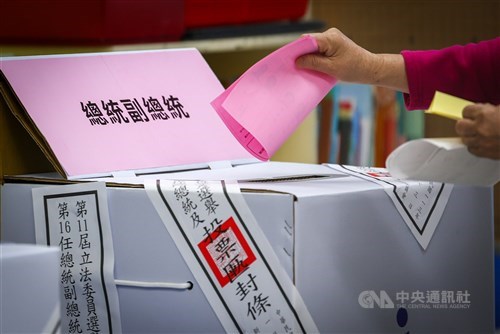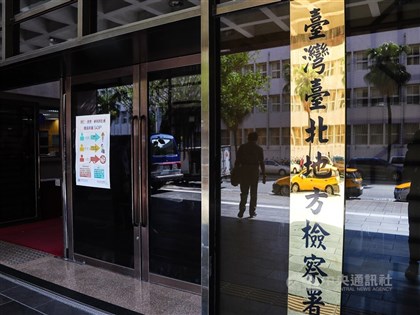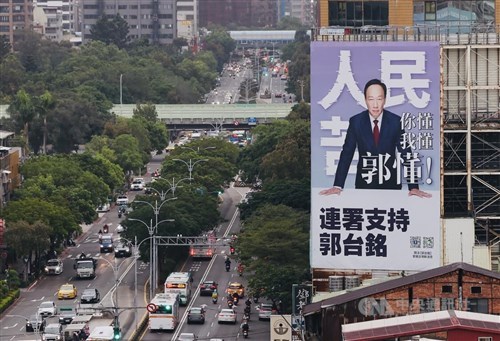ELECTION 2024/DPP canvases for support at 'Super Sunday' Pingtung campaign rally
01/07/2024 09:55 PM
Ruling Democratic Progressive Party (DPP) legislative nominees gathered for a "Super Sunday" event in Pingtung County Sunday, with presidential candidate Lai Ching-te (賴清德) making a push to consolidate support in an area generally considered a DPP stronghold.
(Full text of the story is now in CNA English news archive. To view the full story, you will need to be a subscribed member of the CNA archive. To subscribe, please read here.)
More in ELECTION 2024
![5 suspects, including association head, indicted for election law breach]() 5 suspects, including association head, indicted for election law breachThe head of a new immigrant association and four other people have been indicted for suspected violations of Taiwan's election law as well as the Anti-Infiltration Act, according to the Ciaotou District Prosecutors Office in Kaohsiung.03/07/2024 08:11 PM
5 suspects, including association head, indicted for election law breachThe head of a new immigrant association and four other people have been indicted for suspected violations of Taiwan's election law as well as the Anti-Infiltration Act, according to the Ciaotou District Prosecutors Office in Kaohsiung.03/07/2024 08:11 PM![Taipei prosecutors indict 7 in Terry Gou signature-buying case]() Taipei prosecutors indict 7 in Terry Gou signature-buying caseTaipei prosecutors on Tuesday indicted seven people for stealing ID numbers from e-commerce sites to help business tycoon Terry Gou's (郭台銘) presidential petition drive last year.03/05/2024 05:52 PM
Taipei prosecutors indict 7 in Terry Gou signature-buying caseTaipei prosecutors on Tuesday indicted seven people for stealing ID numbers from e-commerce sites to help business tycoon Terry Gou's (郭台銘) presidential petition drive last year.03/05/2024 05:52 PM![Pingtung Council speaker indicted in Terry Guo signature buying case]() Pingtung Council speaker indicted in Terry Guo signature buying casePingtung County Council Speaker Chou Tien-lun (周典論) has been indicted on suspicion of buying signatures for business tycoon Terry Gou's (郭台銘) presidential run, the Pingtung District Prosecutors Office said Wednesday.02/21/2024 09:14 PM
Pingtung Council speaker indicted in Terry Guo signature buying casePingtung County Council Speaker Chou Tien-lun (周典論) has been indicted on suspicion of buying signatures for business tycoon Terry Gou's (郭台銘) presidential run, the Pingtung District Prosecutors Office said Wednesday.02/21/2024 09:14 PM
Latest
- Society
Starlux cancels some Hong Kong, Macau flights due to tropical storm
09/07/2025 11:33 AM - Society
Rain forecast across much of Taiwan Sunday
09/07/2025 10:40 AM - Cross-Strait
Chinese fishing boat seized near Penghu for illegal operations: CGA
09/06/2025 09:20 PM - Society
Military silent on suspected Brave Eagle debris found in Taitung
09/06/2025 09:08 PM - Politics
MND monitoring Taiwan Strait amid foreign warship transit reports
09/06/2025 06:40 PM


